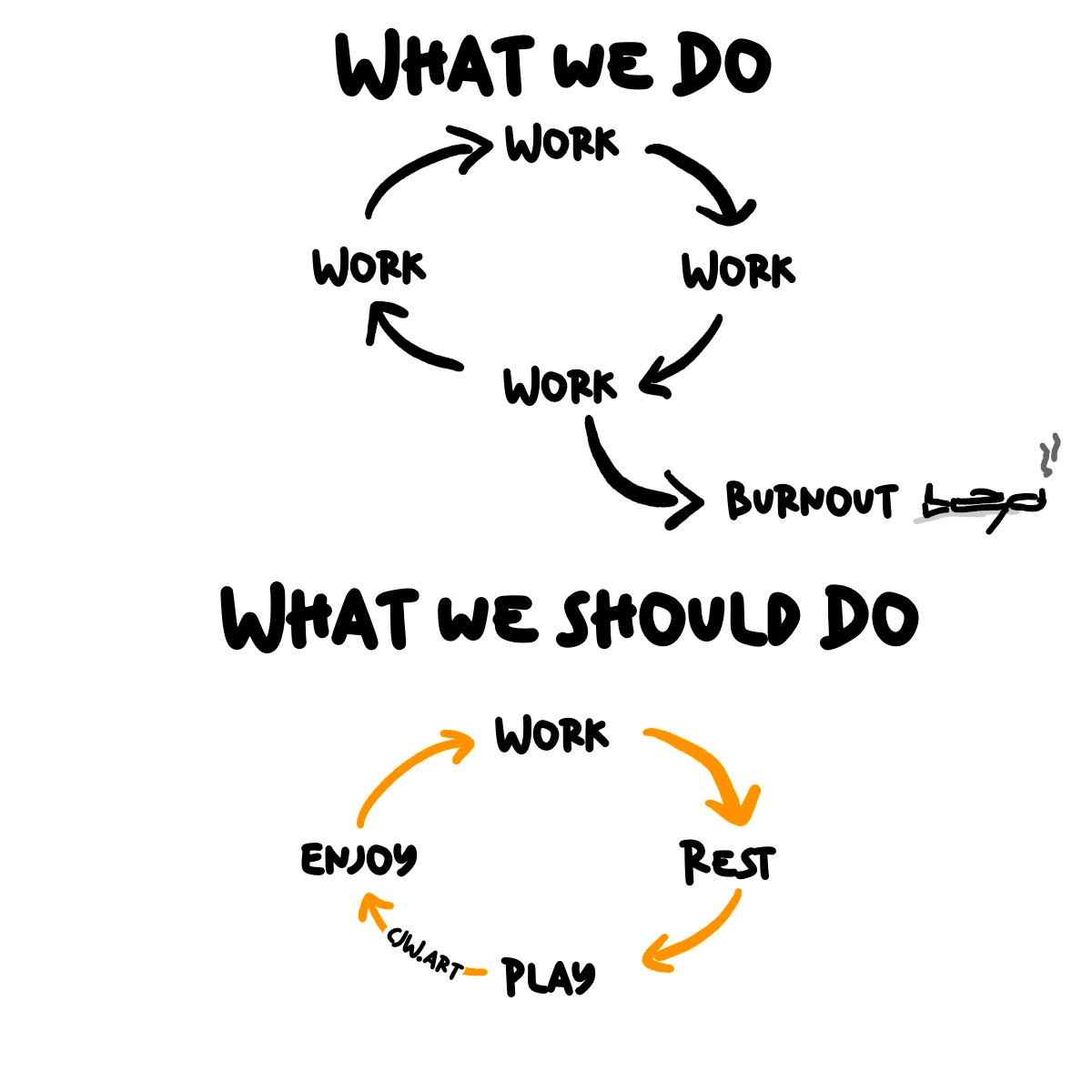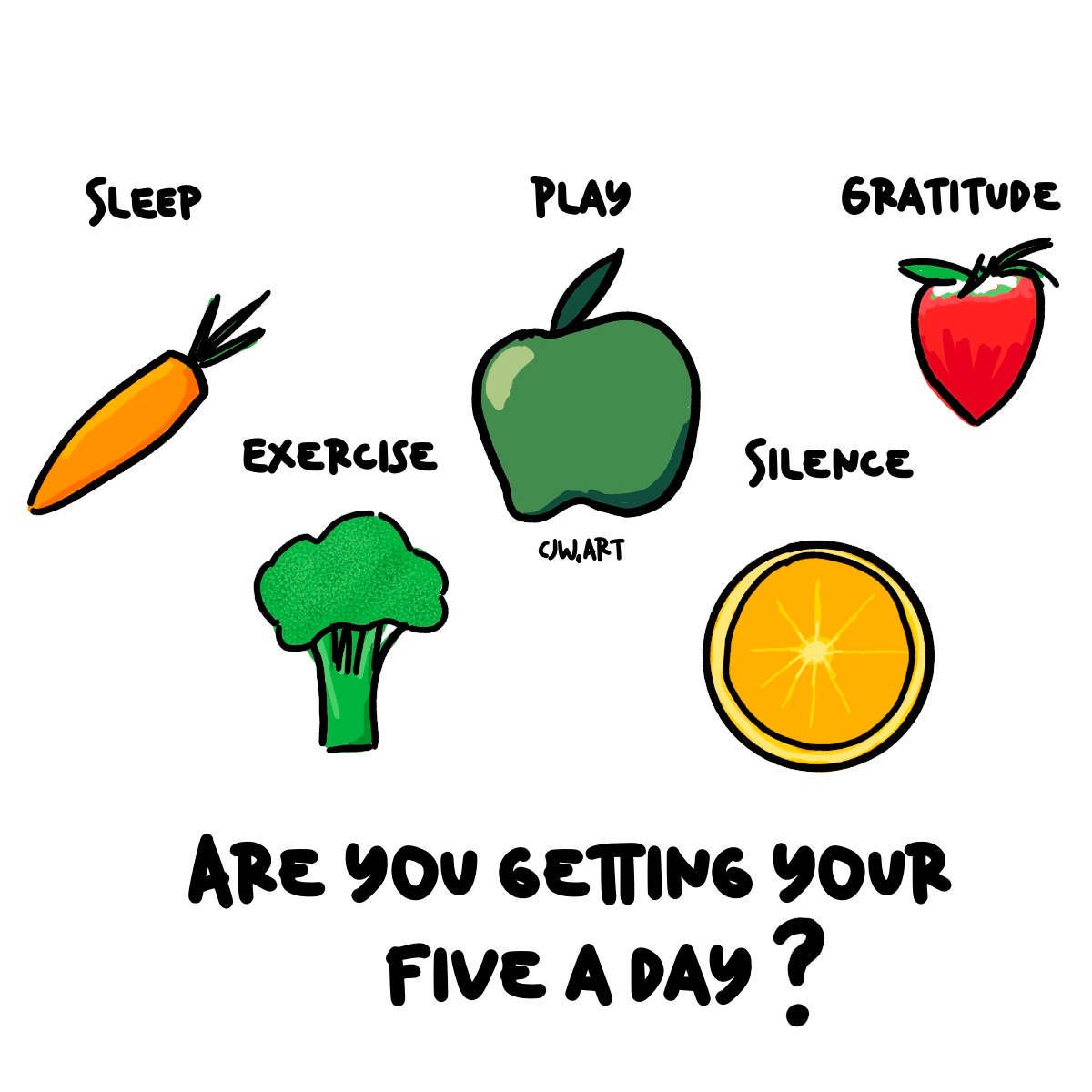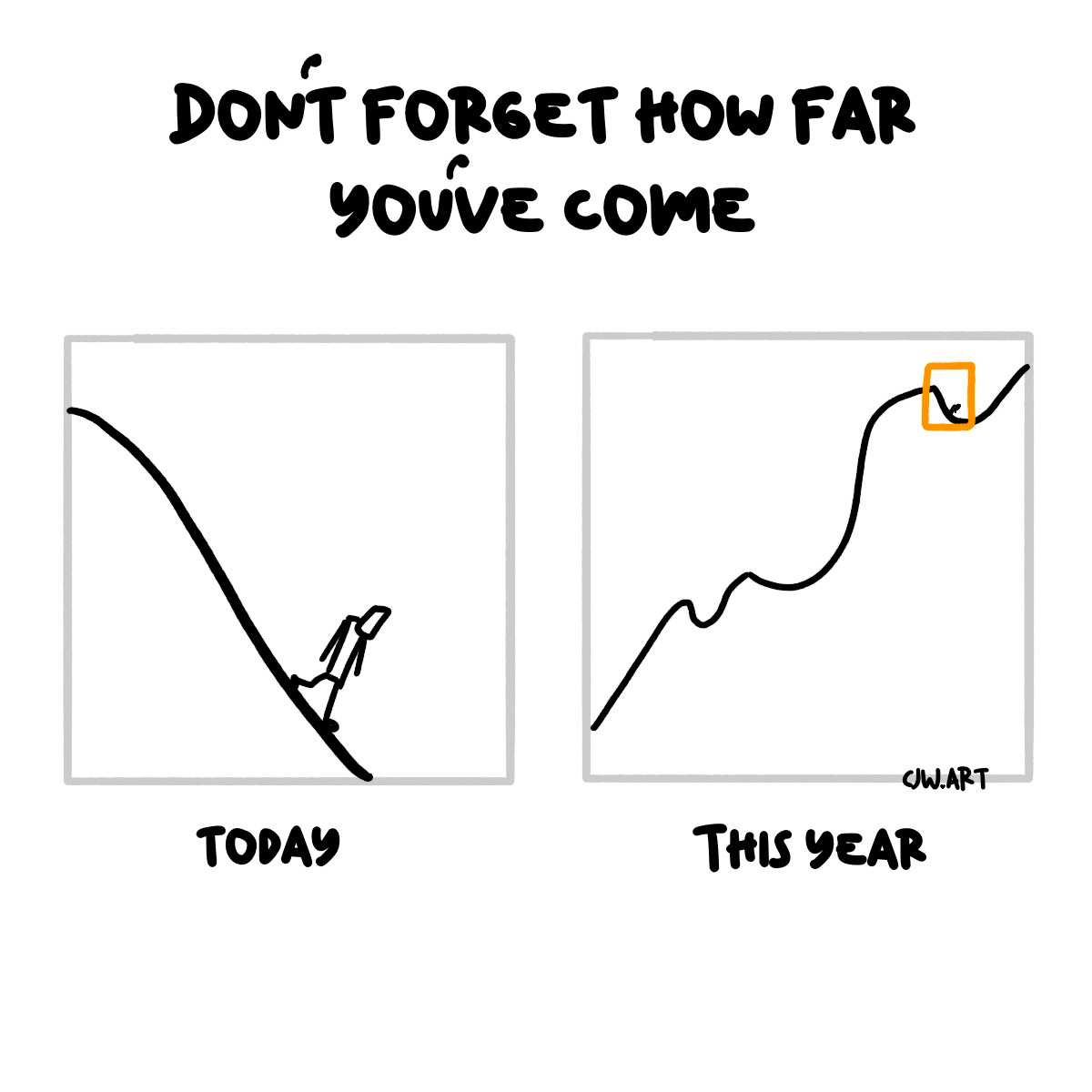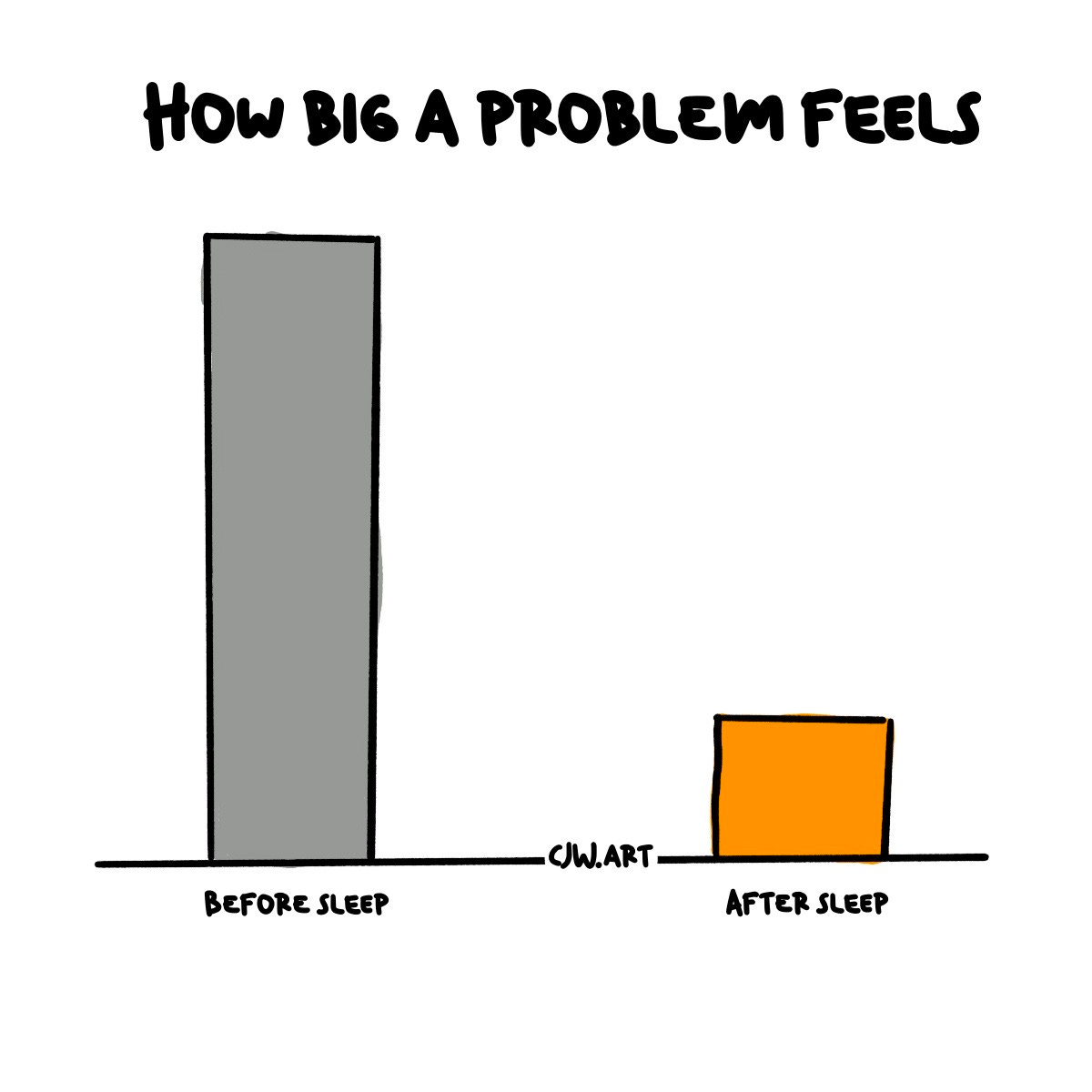7 visuals about self-care to protect your mental health
Small actions you can do today, to avoid big treatments tomorrow
It’s easy to take our mental and physical health for granted.
It’s only when it’s bad that we notice it. Perhaps that’s why so many people neglect their mental health till it’s really in bad shape.
If that’s the case for you (and it has been the case for me in the past) then these 7 visuals have some simple ideas — anyone can do them — to help.
1. Don't wait till you burn out to recharge
You don’t notice burnout until you are burned out.
Sure, there will be some warning signs, but it’s only when you’re completely drained that you know you’re at the bottom. And that’s why it’s key to take proper care of yourself before you burn out.
You might not finish that project as quickly, but you’ll finish more projects (and have more fun too) if you do.
And that brings us nicely to the kind of breaks you should take.
2. Identify your five-a-day
There was this health campaign in the UK — get your five a day.
The idea was simple, have five portions of fruit or veg a day to stay healthy. Companies even started putting signs like “two of your five-a-day” on their packaging.
Use this idea for self-care. Find easy-to-do activities (exercise, hobbies, socialising, eating healthy food, mindfulness practices, journaling) and make sure you get your five a day.
Best of all, you don’t have to do all five every day, you can pick to suit your mood.
Action: jot down a list of activities that help you recharge and feel energised. Identify five ones you can do any day.
3. When your thoughts are overwhelming, write them down.
“…we suffer more from imagination than from reality.” Seneca
Problems are rarely as bad as we think they are.
But when they are stuck in our heads, they can wreak havoc. Writing them down does three things.
It externalises them which helps us look at them objectively rather than based on our feelings.
It stops our brain from cycling through them again and again.
It helps us recognise what is the deeper issue or concern.
Give it a try.
You can do it proactively to avoid stress, or reactively when you feel stressed.
Action: when you next feel overwhelmed, jot down what’s on your mind. Try the 5 whys technique to get to the root of big issues.
4. Don't forget how far you've come
We all have bad days.
Days when things don’t go right, when we can’t fix a problem, or when we just feel terrible — it’s part of life.
The problem is that we focus on how things are now, not how far we’ve come.
One of the biggest factors in feeling good about your work is if you finish a task that day. But the most important tasks require multiple days to finish. So working on really important work feels less productive than unimportant tasks.
Only by zooming out and recognising our progress can we appreciate things as they are.
Action: take time to recognise your success, no matter how small they are.
5. Sleep cleanses your thoughts
Sleep literally detoxifies your brain1.
During your waking hours, toxins build up in your brain. When you sleep, your body flushes them out.
It’s perhaps no wonder sleep deprivation inhibits so many key abilities (memory, motor skills, focus, reasoning, etc.).
Most people need 7-9 hours a night, but few get it.
Make sure you do.
Action: set a reminder to go to bed with enough time to get 8 hours of sleep — your smartphone might support this.
6. If you feel like an imposter, you're not alone
70% of adults feel some form of imposterism during their life2.
And the more you are stretched and out of your comfort zone, the more likely you are to feel it.
Use that as a positive. If you feel out of place, it means you are growing.
That doesn’t mean you should hide your doubts or struggles — that can help too — but
Action: when you are out of your comfort zone, view it as a chance to grow.
7. Practice gratitude
Gratitude is the closest thing to a secret to happiness.
It shifts your mind from what you lack to what you have and how valuable and lucky you are.
You can have little but be very grateful, or have much and be very greedy.
I know which I’d rather be.
Action: try writing one thing you are grateful for each day will boost your mood.
Found this useful?
If you found this post useful, I have a couple of tiny requests.
Share your insights: Add a comment with your top self-care tip.
Share these insights: Forward this to a friend or like it on LinkedIn or Twitter(X) so others can find it.
Sign up for insights: Sign up below so you get the next post in your inbox.
Sleep drives metabolite clearance from the adult brain. Science. 2013 Oct 18;342(6156):373-7. doi: 10.1126/science.1241224. PMID: 24136970.
https://so06.tci-thaijo.org/index.php/IJBS/article/view/521/pdf











For point 7, I recently read a quote from Greg Mckeown's new book: Effortless.
"If you focus on what you lack, you lose what you have; if you focus on what you have, you get what you lack."
Just thought of sharing. The power of gratitude.
My go to self care is journalling